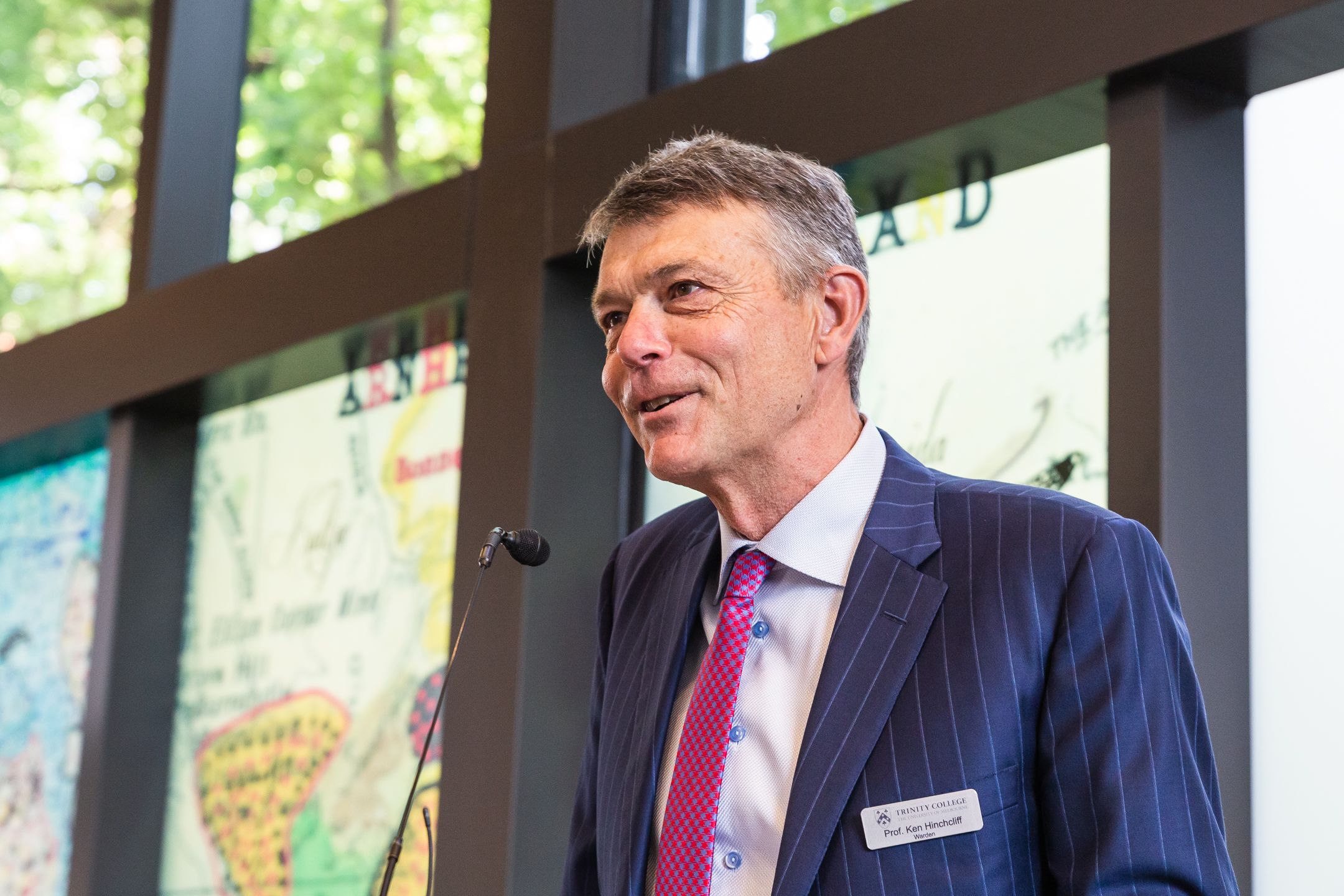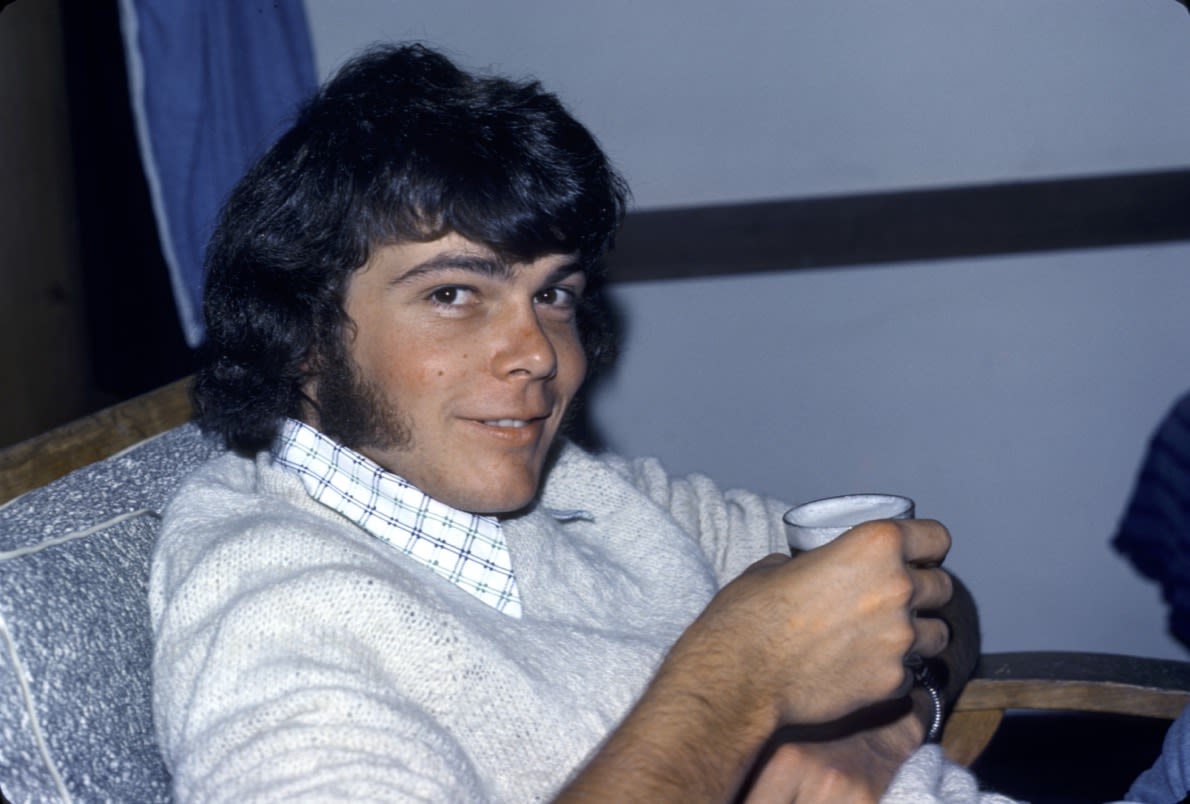The eighth Warden
Professor Ken Hinchcliff

Professor Ken Hinchcliff was born in the small farming community of Penshurst, near Hamilton, in western Victoria. It was here that his interest in curing animals took hold, and he enrolled in forestry studies at ANU following high school at Hamilton College. After his first year he transferred to veterinary science at Melbourne University, living in residence at Trinity from 1976 to 1978.
After graduating with a Bachelor of Veterinary Science, Ken worked as a vet in Hamilton for six months before moving to the US for an internship in large animal medicine and surgery at Louisiana State University. He then earned a Master of Science from the University of Wisconsin-Madison and a PhD from Ohio State University.
He stayed in Ohio State for 17 years, rising to the position of Head of Equine Medicine and Surgery in the College of Veterinary Medicine.
People are important to him and he is passionate about providing opportunities, provoking thought, encouraging diversity.
Returning to Melbourne in 2007, Ken was Dean of the Faculty of Veterinary Science until 2014 and then Dean of the Faculty of Veterinary and Agricultural Sciences at Melbourne University until 2015.
At the University of Melbourne, Ken led the formation of the joint Faculty of Veterinary and Agricultural Sciences, directing the review and renewal of the undergraduate teaching programs in that faculty, and was responsible for the introduction of the Doctor of Veterinary Medicine program, which the university began teaching in 2011.
Hinchcliff’s greatest impact on Trinity is yet to be calculated
Image: Ken Hinchcliff in 1976

An internationally renowned scholar of veterinary internal medicine and exercise physiology, Ken has authored more than 170 scientific publications in professional journals and has co-authored several books including the 9th, 10th and 11th editions of Veterinary Medicine, the most cited veterinary text book, and was lead editor of the 1st and 2nd editions of Equine Sports Medicine and Surgery.
Since 1999 he has been the co-editor-in-chief of one of the world’s leading veterinary publications, the Journal of Veterinary Internal Medicine.
His own experience as a Trinity student shaped his life and he wants to pay it forward.
When the Warden position became available at Trinity College in 2015 following the departure of Professor Andrew McGowan, Jim Craig (the chair of the Trinity College Board at the time), was clear on the key criteria when recruiting for the eighth Warden.
‘Experience and knowledge in international education’ was essential, as was ‘an experienced academic leader at the global level’, with exceptional leadership qualities of compassion and empathy. And if the candidate were to have a personal understanding of the College, even better.
Ken ticked all the boxes.
He was installed as the eighth Warden of Trinity College on 11 September 2015.
Ken is an approachable leader. People are important to him and he is passionate about providing opportunities, provoking thought, encouraging diversity and supporting everyone in the Trinity community to achieve their goals.
His own experience as a Trinity student shaped his life and he wants to pay it forward.
It was at Trinity that Ken met his wife Carole (TC 1978) and the couple's daughter, Alex (TC 2012), is a Trinity alum, as are other family members and many friends.
Ken drove the creation of Trinity’s strategic plan Unlocking Exceptional Promise (2017). As a result, the following initiatives were enacted under his leadership:
- Providing world-class facilities on the Parkville campus for Pathways School students in the new Gateway Building (2016).
- Increasing the Residential College by 100 students via the construction of the Dorothy Jane Ryall residential building (2020).
- Endorsement of the Uluru Statement of the Heart (2019).
- Introduction of the Indigenous Higher Education Conference (2017).
- Expanding the number and value of scholarships to enable greater opportunity and diversity of the student cohort.
Ken's greatest impact on Trinity, however, is yet to be calculated. As the leader during a once in a 100-year pandemic, Ken led the College through an extremely tumultuous time.
Trinity’s future is bright, due to the sound, and often difficult, decisions Ken made to steer the College through the challenges of recent years.






